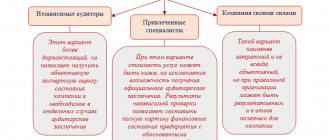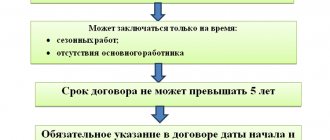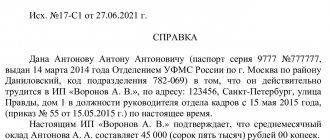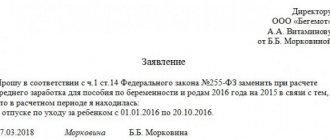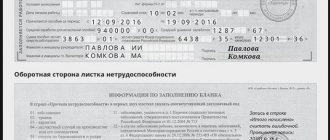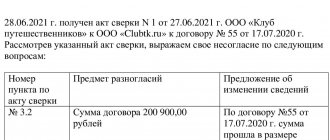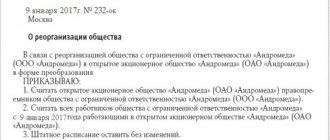Who needs PVTR
All employers must have the document, regardless of their form and status (yes, individual entrepreneurs are also needed), according to Article 189 of the Labor Code of the Russian Federation, PVTR is a mandatory document. Micro-enterprises are allowed to do without a separate document, but then they must include all the rules in employment contracts with employees. These terms and conditions of employment contracts are significant and are subject to change with prior notice.
Since many issues that actually cover the entire life cycle of an enterprise are subject to regulation, the internal regulations are a voluminous document. The employer will have to draw it up independently, preferably at the very beginning of the activity, since the internal labor regulations are approved before hiring the first employees. And this is one of the first documents that labor inspectors require when checking. If necessary, the document is subject to change.
Model rules
Legislators took care of employers and approved the rules for drawing up PVTR by Decree of the USSR State Committee for Labor No. 213 of July 20, 1984 (no longer in force), that is, back in the Soviet Union and more than 30 years ago. It is obvious that it is almost impossible to use these rules in modern conditions. Theoretically, they can be taken as a basis, since the general principles of the approach to this issue do not depend on time. Now what internal labor regulations are and what issues they regulate is regulated by the Labor Code of the Russian Federation and industry regulations. Each company independently chooses how to formulate this important document, taking into account the specifics of its work, the wishes of the owners and the opinion of the employees' union. PVTR must be agreed upon with the trade union committee, and this agreement is documented in a protocol and placed on the title page of the local regulatory act.
ConsultantPlus experts discussed how to draw up internal labor regulations. Use these instructions for free.
Important "disciplinary" section
Compliance with labor discipline is one of the most important issues that requires scrupulous study. Without this, the VTR rules will be insufficient and incomplete. Special attention is paid to the disciplinary issue, and in certain industries they do not limit themselves to the section of the VTR rules, but develop separate provisions or disciplinary statutes.
The disciplinary section consists of 2 parts: penalties and rewards. The section on penalties is based on Art. 192 of the Labor Code of the Russian Federation, in which a disciplinary offense is defined as failure to perform or improper performance of labor duties by an employee, which may result in 3 types of penalties (reprimand, reprimand and dismissal). Labor legislation does not provide for any other penalties.
For more information about disciplinary sanctions provided for by the Labor Code of the Russian Federation, read the material “Types of disciplinary sanctions under the Labor Code of the Russian Federation” .
Additional penalties can only be discussed in cases where special disciplinary liability is imposed on the employee. They are indicated in federal legislation or disciplinary regulations for certain categories of workers (Part 2 of Article 192 of the Labor Code of the Russian Federation). An example is the Law “On the State Civil Service” dated July 27, 2004 No. 79-FZ, which includes among additional penalties a warning of incomplete compliance and dismissal from the civil service position being filled.
IMPORTANT! According to Art. 193 of the Labor Code of the Russian Federation, a disciplinary sanction will be legal if the employer follows a certain procedure (requests a written explanation from the employee, draws up a report, issues an order, etc.).
The VTR rules must also provide for all cases when a disciplinary sanction is lifted (Article 194 of the Labor Code of the Russian Federation).
The VTR rules may not contain a section on incentives if this issue is already reflected in other local acts of the employer.
If this issue is not addressed anywhere, the VTR rules should reflect at least information about the types of incentives (gratitude, bonus, etc.) and the reasons for material or moral incentives (for work without marriage, etc.).
IMPORTANT! The section of the internal labor regulations dedicated to incentives allows you to fearlessly take into account bonuses and incentive allowances as part of salary expenses when calculating income tax (part 1 of article 255, paragraph 21 of article 270 of the Tax Code of the Russian Federation).
What sections are needed
In fact, the internal regulatory act of a single company practically duplicates in miniature the large Labor Code of the entire country. The internal regulations include the following sections, which closely overlap with the articles of the Labor Code:
- procedure for hiring employees;
- procedure for dismissing employees;
- work schedule and rest time;
- basic rights and obligations of the employer;
- basic rights and responsibilities of employees;
- employer's liability;
- employee responsibility;
- remuneration procedure;
- incentives and penalties;
- other issues of regulation of labor relations (you can specify in the document requirements for the appearance of employees, the so-called dress code, including restrictions on the use of personal phones during work hours, etc.).
If the employer forgets and does not include in the PVTR any important section that regulates the same section in the Labor Code of the Russian Federation, then when checked by the State Labor Inspectorate, this fact will lead to the issuance of an order, since this is a violation. Consequently, when forming a document, you cannot omit any of the fundamental articles of the Labor Code of the Russian Federation; however, it is also not worth rewriting half of the code verbatim into these rules. It is important to remember the main thing: none of the requirements of the internal regulations of an organization or individual entrepreneur should worsen the situation of employees in comparison with the standards established by Russian legislation. In this case, Article 8 of the Labor Code of the Russian Federation works, which simply cancels such requirements.
What should not be included
Before moving on to drawing up the rules, it is necessary to remember what is included in the internal regulations of the enterprise. First of all, this local act contains the general working conditions in a particular company and the general requirements of its management for employees, since Article 21 of the Labor Code of the Russian Federation directly stipulates that every employed citizen is obliged to comply with discipline and the internal regulations of the enterprise at which he works. Accordingly, the rules will be of a general nature, applicable to absolutely every employee: from the cleaner to the heads of departments. All personal requirements are excluded. This means that all job responsibilities, requirements for workplaces and the characteristics of the functioning of individuals must be prescribed in other documents, which, in particular, include employment contracts, job descriptions and other agreements. There is no place for such requirements in the PVTR.
Acceptance and approval procedures
First, you should get approval from the trade union (if you have one), since its participation in this matter is mandatory. And then indicate the details of the minutes of the trade union meeting.
This is what a sample order for approval of internal labor regulations looks like:
All already working employees are introduced to the new document against signature: a special register or familiarization log is used to record familiarization. It is important in the future to issue rules for careful study by new employees when they are hired. They must confirm that they have read and understood the document by signing the review log. Article 68 of the Labor Code of the Russian Federation regulates this before concluding an employment contract and issuing an order for employment.
Results
The internal labor regulations - 2022, a sample of which you can download on our website, are needed by all employers. When developing them, it is necessary to be based on the requirements of labor legislation and take into account the specifics of the main type of activity performed.
Properly drawn up labor regulations help not only to discipline employees and avoid labor conflicts, but also to justify for the inspection authorities the incentives paid to employees, which encourage them to perform their job functions in a high-quality manner.
Sources:
- Federal Law of July 27, 2004 N 79-FZ “On the State Civil Service of the Russian Federation”
- Labor Code of the Russian Federation
You can find more complete information on the topic in ConsultantPlus. Free trial access to the system for 2 days.
Contents of sections
PVTR is a very voluminous document; it takes into account all current legal requirements. Some of its points cover general norms, and some are more specific. Let's take a closer look at what this act looks like and what you should not forget in each of its sections. The title page contains the full name of the organization and its abbreviated version; it must contain the manager’s visa confirming the approval of the document with a date. This procedure is determined by Article 190 of the Labor Code of the Russian Federation. Next comes the general information section, which briefly explains the concept of the entire act.
An example of how the organizational rules are drawn up on the title page:
Next come the remaining sections, which the compiler places in random order. In each of them, the specific nuances of the organization’s work should be taken into account.
Distant work
If the organization has not previously practiced remote working mode, but due to the pandemic of the new coronavirus infection and the restrictive measures taken, it had to be introduced, changes to the PVTR are necessary. They take into account the working hours outside the main workplace and clarify the responsibilities of employees.
IMPORTANT!
The rules must be updated immediately after the decision is made to transfer employees to remote work. If this is not done, you will be held accountable under the Code of Administrative Offenses of the Russian Federation.
Changes during the transition to electronic work books
After the transition to electronic work books in 2022, new features of hiring and dismissal and the list of documents provided during employment must be taken into account in the new version of the PVTR. In order to approve the internal labor regulations with electronic labor, a separate order is issued for the organization to make the necessary changes. It prescribes the need to comply with the requirements of the law on the generation of information about the activities of employees in electronic form and preparation for the submission of SZV-TD reports according to the established schedule. The order appoints the persons responsible for this work and determines what actions and in what order they need to perform.
The rules take into account the possibility of maintaining a paper book (if the employee previously stated this in writing) or providing information in electronic form in accordance with Art. 66.1 Labor Code of the Russian Federation. New employees are required to create an electronic database. The new items look like this:
For all Employees who have worked for more than 5 (five) days, work books are maintained in accordance with the established procedure (Article 66 of the Labor Code of the Russian Federation), except for cases where a work book is not maintained for the Employee in accordance with the Labor Code of the Russian Federation.
The Employer electronically generates basic information about the work activity and length of service of each Employee (hereinafter referred to as activity information) and provides it in the manner established by the legislation of the Russian Federation on individual (personalized) registration in the compulsory pension insurance system, for storage in the information resources of the Pension Fund RF. Information about activities includes information:
- about the employee;
- his place of work;
- his labor function;
- transfer of an employee to another permanent job;
- on the dismissal of an employee, indicating the grounds and reasons for termination of the employment contract;
- other information provided for by the Labor Code of the Russian Federation and other federal law.
The formation of information about the activities of persons entering work for the first time after the period established by federal law is carried out in accordance with the Labor Code of the Russian Federation; work books are not issued for these persons.
The paper work record book and SNILS, which legislators had previously converted into electronic format, are excluded from the list of documents that an applicant is required to provide when applying for employment.
Disciplinary action
To avoid unnecessary disputes with employees, include in your internal labor regulations a complete list of violations of discipline in the workplace, which, according to the provisions of Article 81 of the Labor Code of the Russian Federation, lead to dismissal (absenteeism, drunkenness during working hours, hooliganism, etc.).
IMPORTANT!
It is impossible to prescribe disciplinary measures not provided for by the Labor Code of the Russian Federation. It is allowed to apply to guilty employees:
- comment;
- rebuke;
- dismissal.
It is possible to specify the rules on violations of discipline that are not disclosed in the code: to cite as an argument the position of the Supreme Court, set out in paragraph 49 of the Resolution of the Plenum of the Supreme Court of the Russian Federation No. 2 of March 17, 2004, where failure to fulfill his duties was cited as a gross violation on the part of the head of the judge, resulting in harm to the health of workers or property damage to the company. It is allowed to prescribe additional punishments, for example, in the form of deprivation of a bonus, in addition to a reprimand and reprimand.
Work time
In the “Working hours” section, you should describe in detail the work and rest schedule at the enterprise, including the length of the working day, week, and even lunch breaks.
For employees with normal working hours, the following working hours are established:
- a five-day work week with two days off - Saturday and Sunday;
- The duration of daily work is 8 hours;
- work start time - 9.00, work end time - 18.00;
- a break for rest and food lasting one hour - from 13.00 to 14.00. This break is not included in working hours and is not paid.
In the same section, you must list all weekends and holidays in accordance with the production calendar approved by the government. If a company operates on a special schedule within the framework of the norms of the Labor Code of the Russian Federation, this must be described in detail in this section.
Guarantees and compensation
It is allowed to indicate individual characteristics in other sections. For example, in the section “Guarantees and Compensations” they provide the specific amount of compensation for delayed wages, which the employer is obliged to pay in accordance with Article 236 of the Labor Code of the Russian Federation. If this size turns out to be higher than the generally established one, this will raise questions from regulatory authorities. You cannot pay less than the minimum wage, even if this is written down in local regulations.
VTR rules on working time and rest periods
The periods of work and rest are described separately in the VTR rules. First of all, workers must firmly know the start and end times of work, as well as the duration of lunch and regulated breaks. An employee who is not familiar with the work schedule may be systematically late and not suspect that he is violating labor discipline.
From the VTR rules, employees learn which days of the week are considered days off, and find out the nuances of the onset and duration of the next calendar vacation.
If work is organized in shifts, all temporary work aspects are subject to reflection: the number of shifts per day, their duration, the start and end time of each shift, etc.
The explanations of ConsultantPlus experts will help you correctly register a “two days in two” or “a day in three” work schedule in the PVTR. Get free access to the system and go to Ready-made solutions using the links above.
If the employer does not draw up a separate local act on irregular work, the VTR rules must indicate at least a list of positions with irregular working hours and the conditions for employees to perform duties outside normal working hours.
IMPORTANT! According to Art. 101 of the Labor Code of the Russian Federation, an irregular working day is recognized as a special labor regime when workers are involved in work outside the time frame of the working day.
We should not forget that it is necessary to take into account time worked in excess of the normal working day. The employer is required to keep such records under Art. 91 Labor Code of the Russian Federation. You can organize this process using any form you have developed yourself or the usual unified forms T-12 or T-13.
and samples of unified report forms can be found on our website:
- “Unified form No. T-12 - form and sample”;
- “Unified form No. T-13 - form and sample”.
IMPORTANT! Irregular work is not paid at an increased rate, but is rewarded with additional leave (minimum 3 days according to Article 119 of the Labor Code of the Russian Federation). The maximum number of days of such rest is not regulated by law, but its duration, established by the employer, must be fixed in the schedule.
The trade union representative should check the content of the VTR rules for the presence of a clause regarding which employees cannot be subject to non-standard working conditions. These include, in particular, minors, pregnant employees, disabled people, etc.
If an employee works remotely, take into account the new rules for remote work that came into force on January 1, 2021. ConsultantPlus experts spoke in more detail about the innovations. Get trial access to the K+ system and go to the review material for free.
Validity period and changes
There is no statutory period for the validity of internal regulations; the organization has the right to set it independently. If, after its expiration, no significant changes occur in the life of the organization and in the Labor Code of the Russian Federation, extend the validity of the local act by order of the head.
But there are times when changes need to be made if:
- there have been changes in the law, for example, increasing the level of guarantees for employees - in this case, the organization’s operating rules must be brought into compliance with the law;
- changes have occurred in the organization, for example, working conditions have changed significantly, the structure of the organization has been updated.
Then the internal regulations need to be revised. The adjustment procedure is similar to the procedure for adopting a new document (the opinion of trade unions, an order from management and familiarization of employees with the updated document are required). Therefore, you should start the procedure in advance. And do not forget to make adjustments to the terms of employment contracts, since PVTR are their essential condition. This happens in accordance with Article 74 of the Labor Code of the Russian Federation with notification of employees 2 months in advance.
The main thing is for the drafters of this normative act not to forget that the more details the internal regulations contain, the fewer controversial issues and disagreements will arise in the future both with the workforce and with regulatory authorities.
The procedure for drawing up internal labor regulations
Internal regulations can be written either by hand or in printed form, and a regular A4 sheet or company letterhead can be used.
Regardless of which writing method is chosen, the document must be signed by the head of the organization. In addition, if the enterprise has a trade union body, the document must also be approved by its representative.
Starting from 2016, it is not necessary to certify the rules with a seal, because the requirement to use seals and stamps in the activities of legal entities has been cancelled.
The form is drawn up in a single copy and stored for the period established by law along with other organizational papers of the company.
If for some reason, during the period of validity of the labor regulations, any amendments need to be made to them, this can be done without problems and at any time. The only condition: they also need to be certified by the director’s signature and the staff must be familiarized with them against signature.
